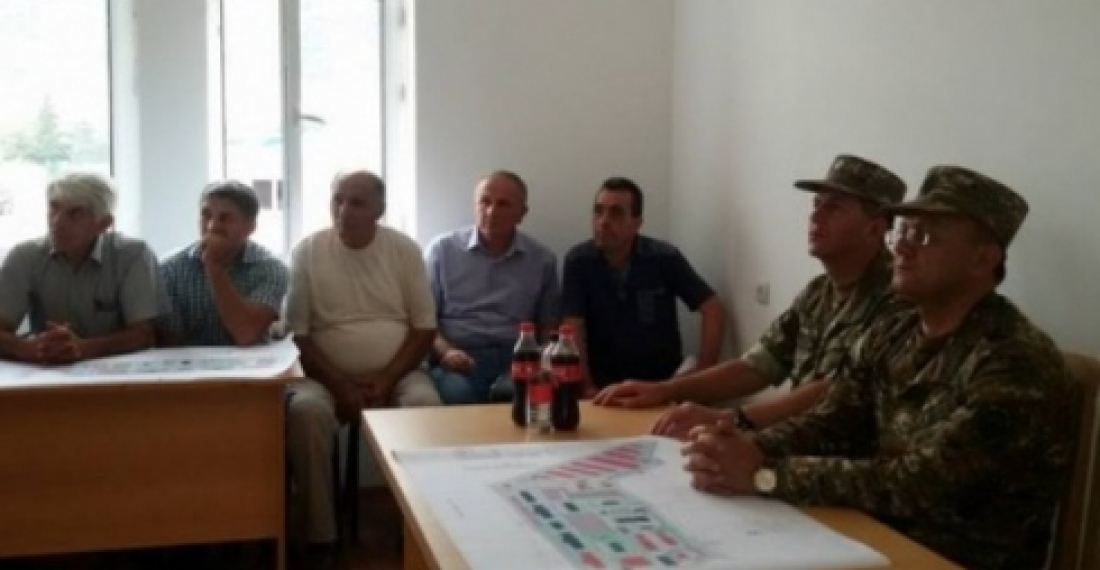Armenian Defence Minister, Seyran Ohanyan, visited the North-Eastern district of Tavush on Saturday and Sunday (8-9 August), as both sides in the Karabakh conflict continue to report violations of the cease-fire between them.
According to the Minister's Press Secretary, Artsrun Hovhannisyan, "The Minister first visited the frontline, got familiarized with the work of improvement of the [Armenian military] positions, engineering equipment, [and] discussed combat-readiness and other matters with the command". According to the same source the Minister also visited military units, and followed the construction work. The Minister also met with residents of border villages, gave the answers to questions concerning them, and discussed, with community leaders the situation on the border.
Whilst Tavush is not within the space of the Nagorno-Karabakh conflict zone it is located on the international border with Azerbaijan. In the last year there have been several violations of the cease fire reported b y both sides, and often it is the civilian communities living on the line of contact in the conflict zone or the international border between the two countries, that suffer the brunt of the violence. Ohanyan met community leaders in Tavush to reassure them.
Both sides say that over the weekend their opponents broke the cease fire dozens of times. The Azerbaijani side said that the Armenians used 60 mm and 82 mm mortar launchers and large-caliber machine guns at a number of locations on the front-line. The Armenian side claims that Azerbaijan fired 165 shells from 60 mm and 82mm towards positions of the Armenian Nagorno-Karabakh forces during the weekend. Commonspace.eu is not able to confirm the accuracy of these reports.
source; commonspace.eu with agencies
photo: Armenian Defence Minister Seyran Ohanyan meeting community leaders in Tavush on Saturday, 8 August 2015 (Photo courtesy of the press service of the Ministery of Defence of Armenia).







